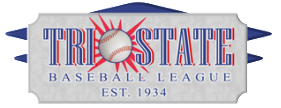Umpires recognize sportsmanship
If you’re the one that loves to holler at them at Fuessenich Park because hollering at the ump is part of Americana, or because you genuinely believe they “stink”, you should have been there.
Why do they put up with your kind of noise? To a man, it’s because “I love the game.”
The Connecticut Approved Umpires Association, Torrington Board, proved that statement in a couple of intentional ways Monday night, and in unintended ways Monday in the upstairs banquet hall at Dick’s Restaurant.
First, the intentional: They presented $500 scholarships to area baseball stars Eric Villanova, from Woodbury, and Nate Calabro, from Washington, based on their baseball playing, scholarship and general citizenship, and their annual Sportsmanship Award to Northwestern High School baseball and its head coach, Jim Davidson.
Calabro, a left fielder who starts his sophomore year at Brown University this fall, is actually last year’s winner, while Villanova, a shortstop headed for Hamilton College this year, is this year’s recipient.
R.J. Poniatoski, the Board’s spring commissioner for the past 12 years, said “we like to give something back” regarding the scholarships, and “we’re comfortable there” about the umpires’ climate at Northwestern.
That begins the swing to the human side of umps that’s hard to get close to on the field. Monday night, at their banquet, an informal round-robin discussion about their craft puts the cap on the dedication and love for the game.
Lucciano Governali, the summer commissioner for the 30-member board, starts the perspective by saying, “I was a professional soccer referee, but it’s so much more fun umpiring,” and Poniatoski, John Doherty and Don DiMartino join in to offer a glimpse of what the “craft” of umpiring really is.
Start with what it isn’t: it’s far from “only” balls and strikes, safe or out.
Doherty takes five weeks every winter to attend the Jim Evans Academy, in Kissimmee, Florida, in behalf of the board. Minor league umpires operate the school, and nobody covers “the rules of balls and strikes, safe or out”.
Instead it’s principles, says Doherty, like “sell the call”, or, in coaching terms that have many similarities, “prove that you’re in charge”.
It’s no ego trip, just management of the game, which, like it or not, is what we ask of umpires. Doing it not only requires authority, the discussion maintains, but the same “position-playing” complexities expected of the players on the field.
“Plate work is one of the things I learned the most about,” says Doherty, who returns from the academy to conduct workshops for the board to pass on the lessons. “Things like when and how the plate umpire has to go out to cover another base.”
But, sure enough, discussion with the umps inevitably gets back to balls and strikes. And here, in loose discussions, the real humanity and, yes, rationality, of the umpires’ craft spreads its wings.
“Some of the strike zone is personality,” the umps agree, along with their own expectation of consistency, along with that of players and fans. But, like the best basketball referees, who know enough to vary their calls with the level of play, the best umpires at the local level, they agree, do it, too.
“We umpire for every league from 15-year-old Babe Ruth players to the adult Tri-State League,” says Poniatoski. “You’re going to cut the 15-year-old’s more slack.”
Essentially, though, the modern umpiring aim relates, again, to that of basketball officials. Just as the good basketball refs try to avoid a parade of free throws between two evenly-matched tough teams, so do good umpires sometimes expand the strike zone to avoid a parade of walks.
Confirm your worst suspicions? No, it should confirm your best impressions, in the reliable human-ness of umpires – the feature that produces both their Americana and the temptation to add your own opinion.
“Being able to trust the guy you work with,” is the number one attribute Monday’s group ascribed to their own best umpires. Trusting their authority, integrity and dedication is the best we fans can give.
Scholarship winners Calabro and Villanova look toward careers in engineering and, maybe, sports journalism, respectively. Summer commissioner Governali still regrets that he had the opportunity to become a minor league umpire, and passed it up.
If you feel the need for more involvement with your love for baseball, the commissioners say they’d love to have you on the board. Contact Poniatoski or Don Schaeffer locally, or watch for their recruitment briefs in early February. Membership requires several hours of classes and the ability to pass a final test.
You, too, could join a fraternity strong enough in dedication to accept abuse like yours as a fan, and certain enough of your craft to laugh along with Poniatoski in his pre-meal prayer: “Thank you for protecting us, even though we’re mostly blind.”
